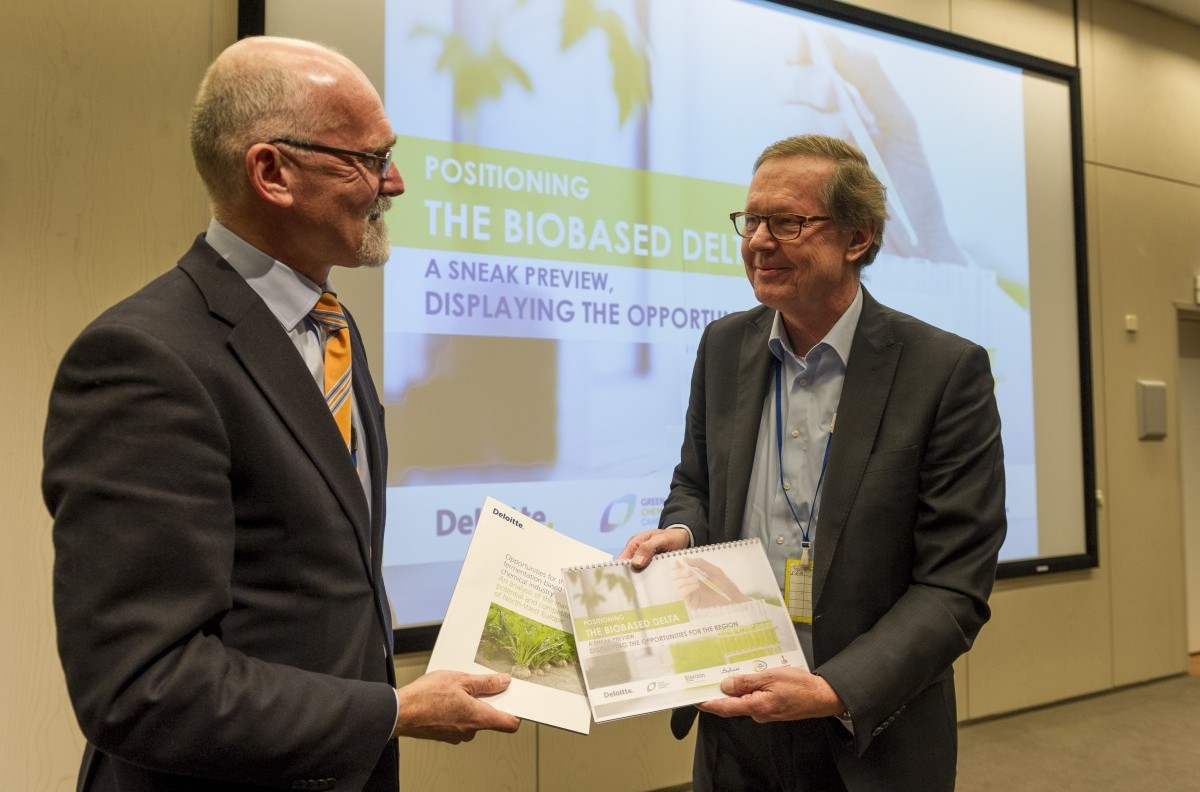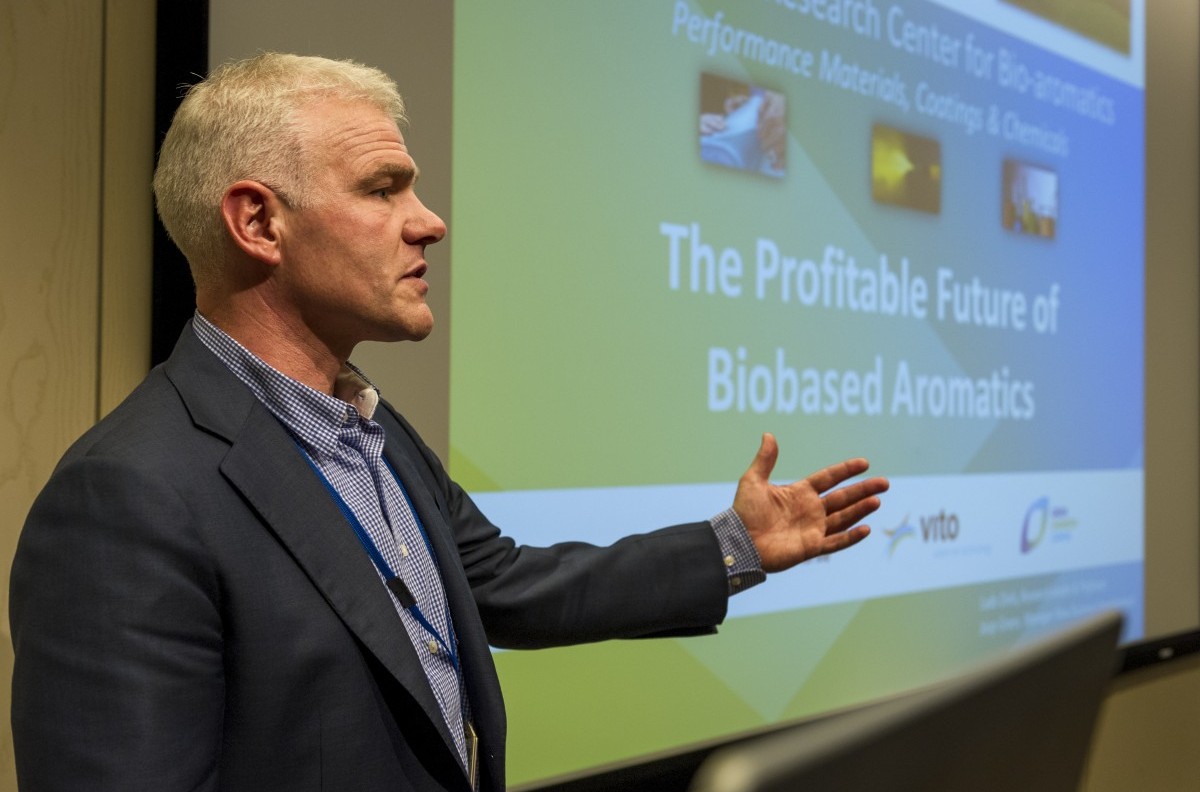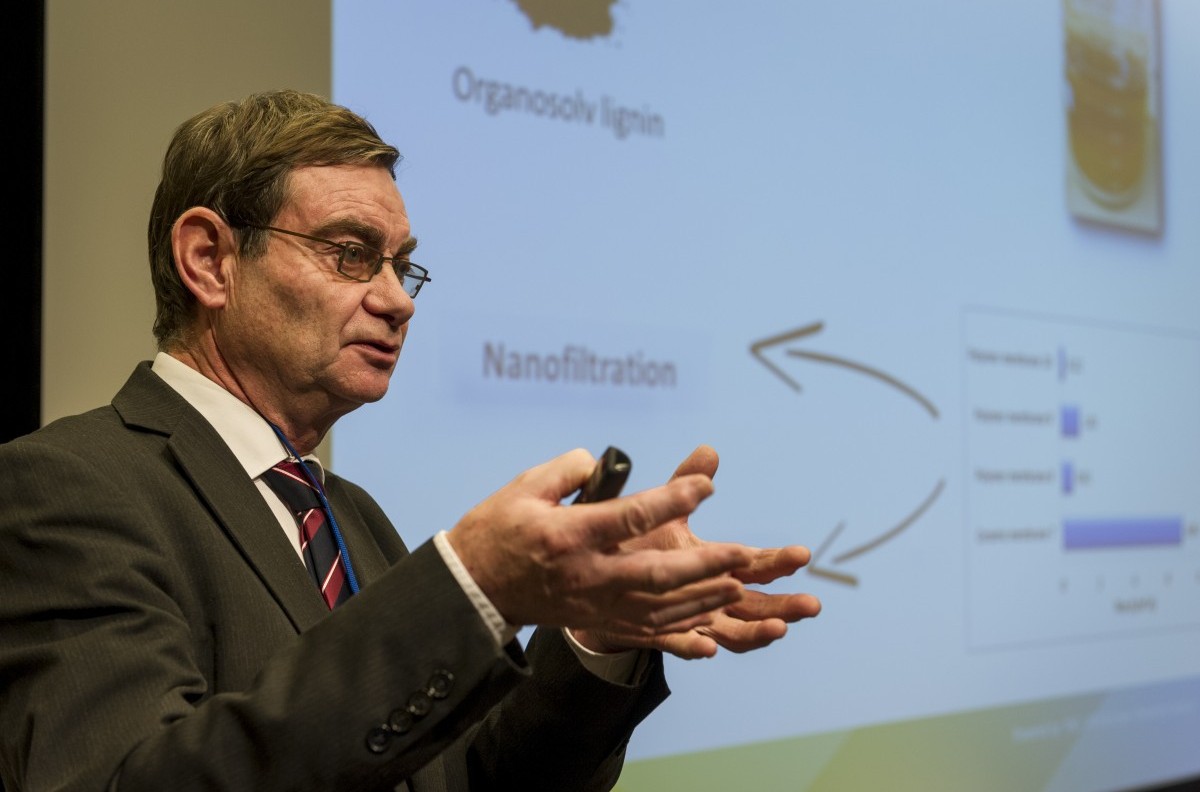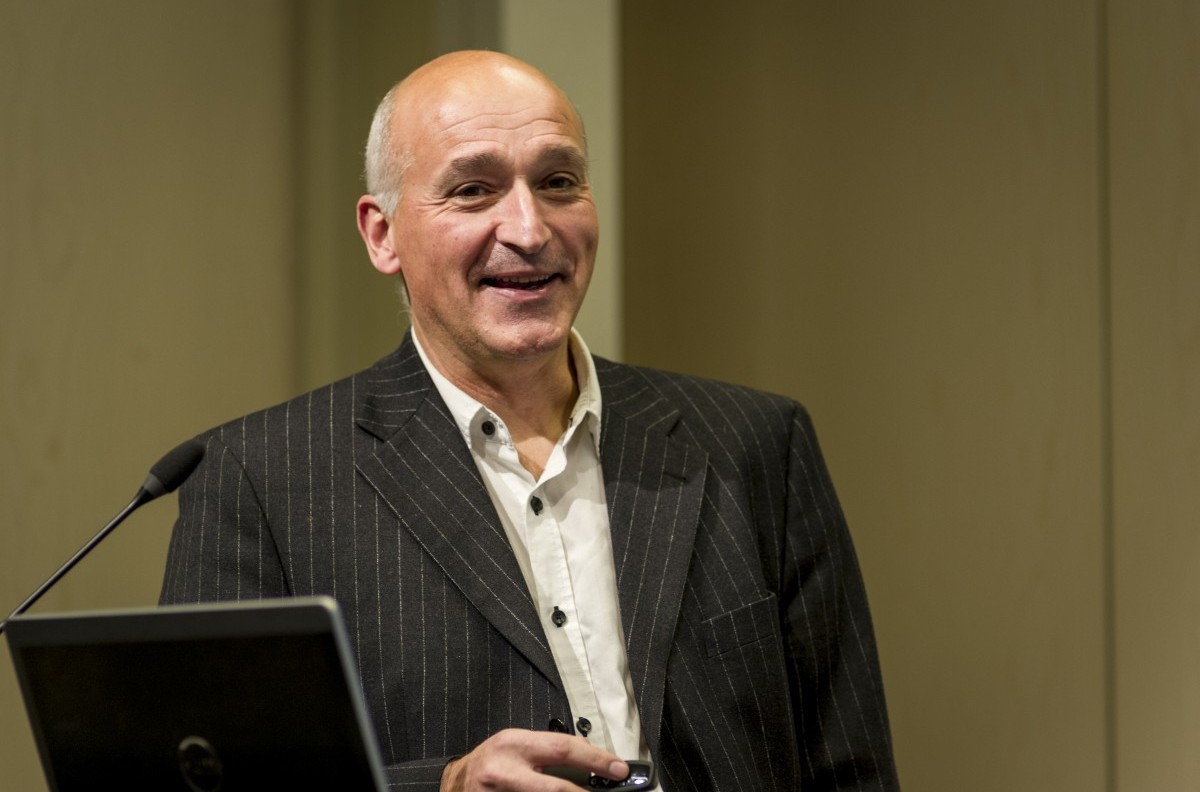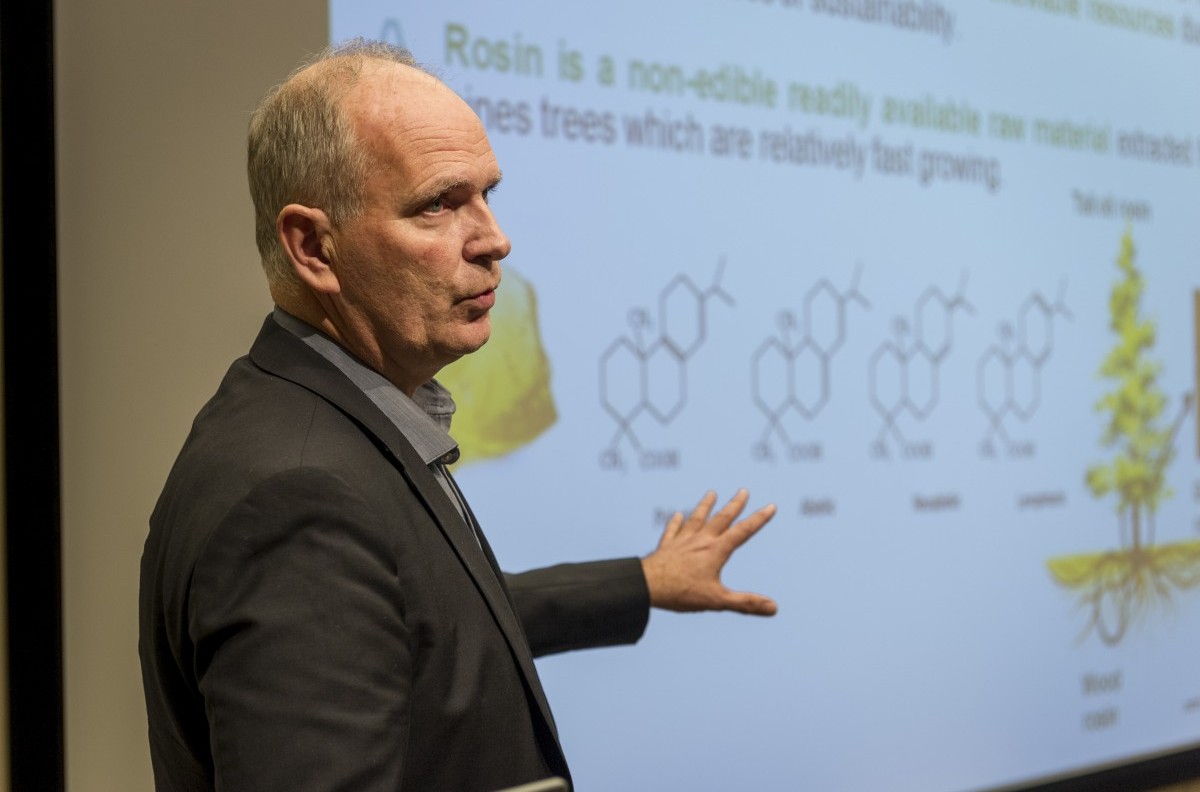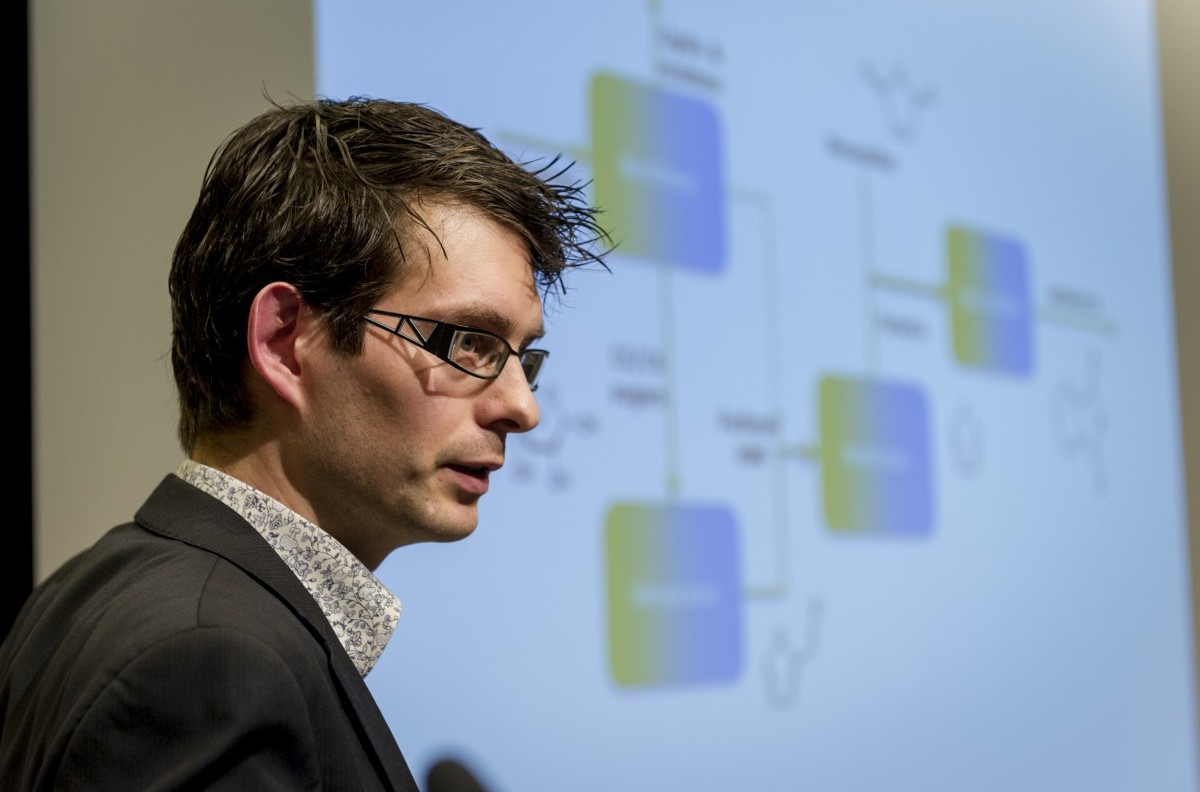News
05-01-2015
Biorizon event shows growing interest in biobased aromatics
The future of biobased aromatics is promising. Companies are avid for sustainable solutions. The Biorizon shared research centre aims to be a world leader in the development of this sustainable chemical technology, but there is still a lot of work to be done before biobased aromatics are a commercial proposition. These are the conclusions reached at the well-attended event The Profitable Future of Biobased Aromatics at the Green Chemistry Campus in Bergen op Zoom.
Biobased aromatics are in the spotlight, as the high attendance at the event The Profitable Future of Biobased Aromatics on 9 December showed. Invited guests from the worlds of agriculture and chemicals and other stakeholders met at the Green Chemistry Campus in Bergen op Zoom. Presentations were given on the principal developments in research and practice in front of a full auditorium. Willem Vaessen of Deloitte believes that the prospects for biobased aromatics are outstanding. The long-term oil price trend is rising, in spite of the recent fluctuations, and that makes alternative raw materials a worthwhile proposition. On top of this, companies are increasingly looking to sustainability. The Biobased Delta in the South West of the Netherlands provides an ideal base for further development in this sector, thanks to the excellent infrastructure and the presence of knowledge institutions and chemical firms.
Less dependance on oil
Industry needs new sustainable solutions in the area of aromatics, as the presentation by Avantium’s Ed de Jong showed. The Dutch technology company Avantium develops, amongst other things, PEF bottles and packaging for clients such as Coca-Cola and Danone. In the next few years Avantium will be investing in a demo plant to produce polymers from furans. Lawter, a company active in the graphics industry, is also closely monitoring developments in biobased aromatics. Lawter is part of the Harima Chemicals Group, which has its origins in Japan. The company is particularly interested in using lignin for inks and resins. Lawter’s Peter Biesheuvel set out the potential benefits for his company: using lignin means using renewable materials, making Lawter less dependent on oil as a raw material.
Patents filed
A good deal of research is still needed, however, to make the commercial use of biobased aromatics feasible. The increasing complexity of innovations makes them virtually unaffordable for individual companies. Pooling some of their R&D budgets reduces the risk to each participant and shortens the time to market. Focus is absolutely essential, as TNO’s Joop Groen stressed. The research is bearing fruit, however, as shown by the building of a mini pilot system and the patents that have been granted.The Biorizon partnership between TNO, Wageningen UR Food & Biobased Research, Vito and Avantium and others shows the benefits that shared research can yield. Professor Ludo Diels of Vito presented examples and discussed the development of new aromatic molecules and materials based on biomass. He also set out the focus points in the Antwerp/Rotterdam/Rhine/Ruhr triangle in this area, under the heading of Big C, i.e. the development of bioaromatics, CO2 as a raw material for the chemical industry and renewable jet fuel.
Samples available
The event concluded with Jan Harm Urbanus giving the participants a glimpse behind the scenes of Biorizon’s Horizon 3 and 4 research in progress. This runs until 2022, but it has already notched up some initial successes. Proof of principle has been established for various stages in converting sugars and lignin into aromatics, for instance, and sample aromatics are available for the industrial testing of applications. We are still a long way from being able to scale up the furans-to-aromatics process, however. To make commercial applications feasible we need to move on from proof of principle to proof of concept in many areas. Meanwhile the world is not standing still. We need to join up our research forces if the Netherlands is to uphold and develop its strong position in this application of sustainable chemistry. Biorizon provides an important platform here, as we saw at The Profitable Future of Biobased Aromatics.
